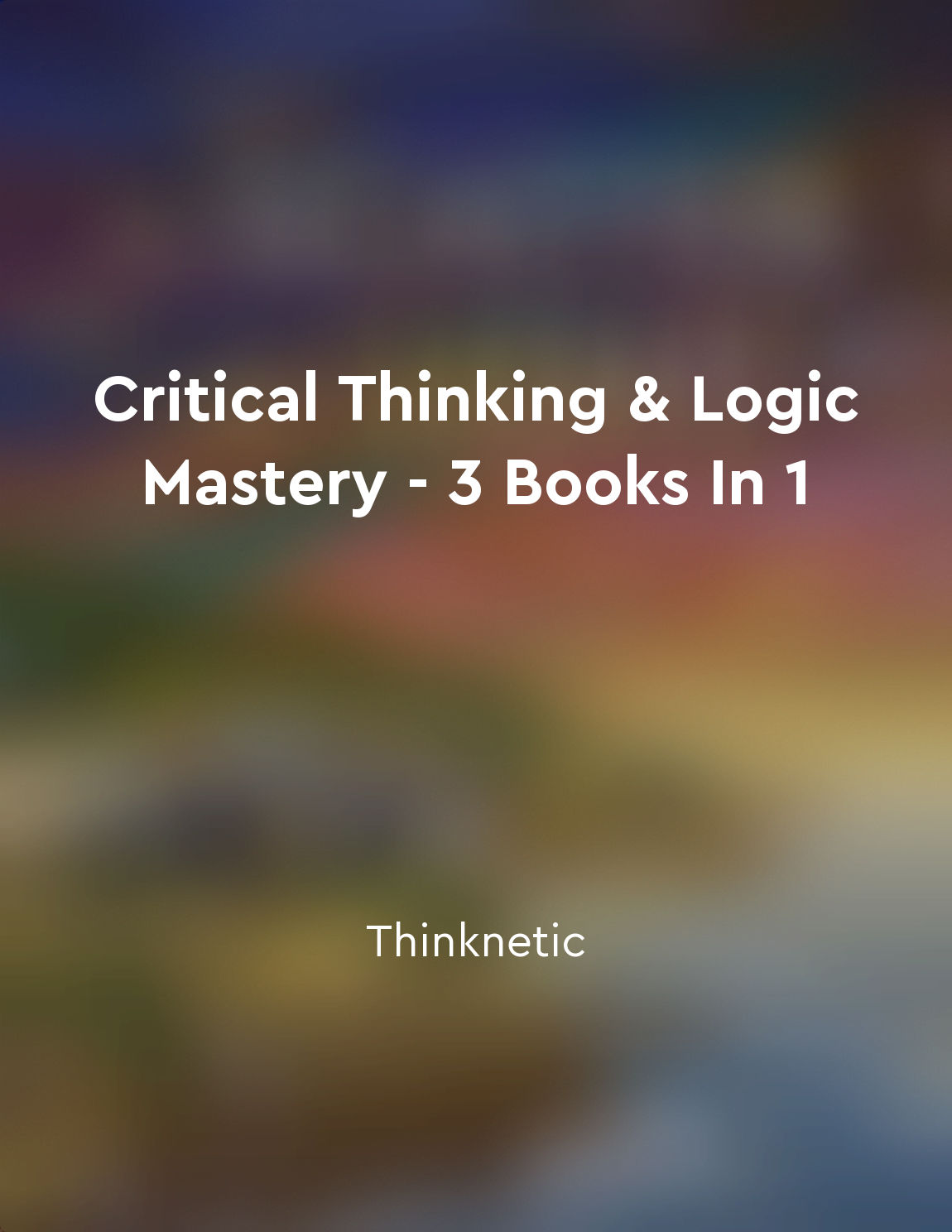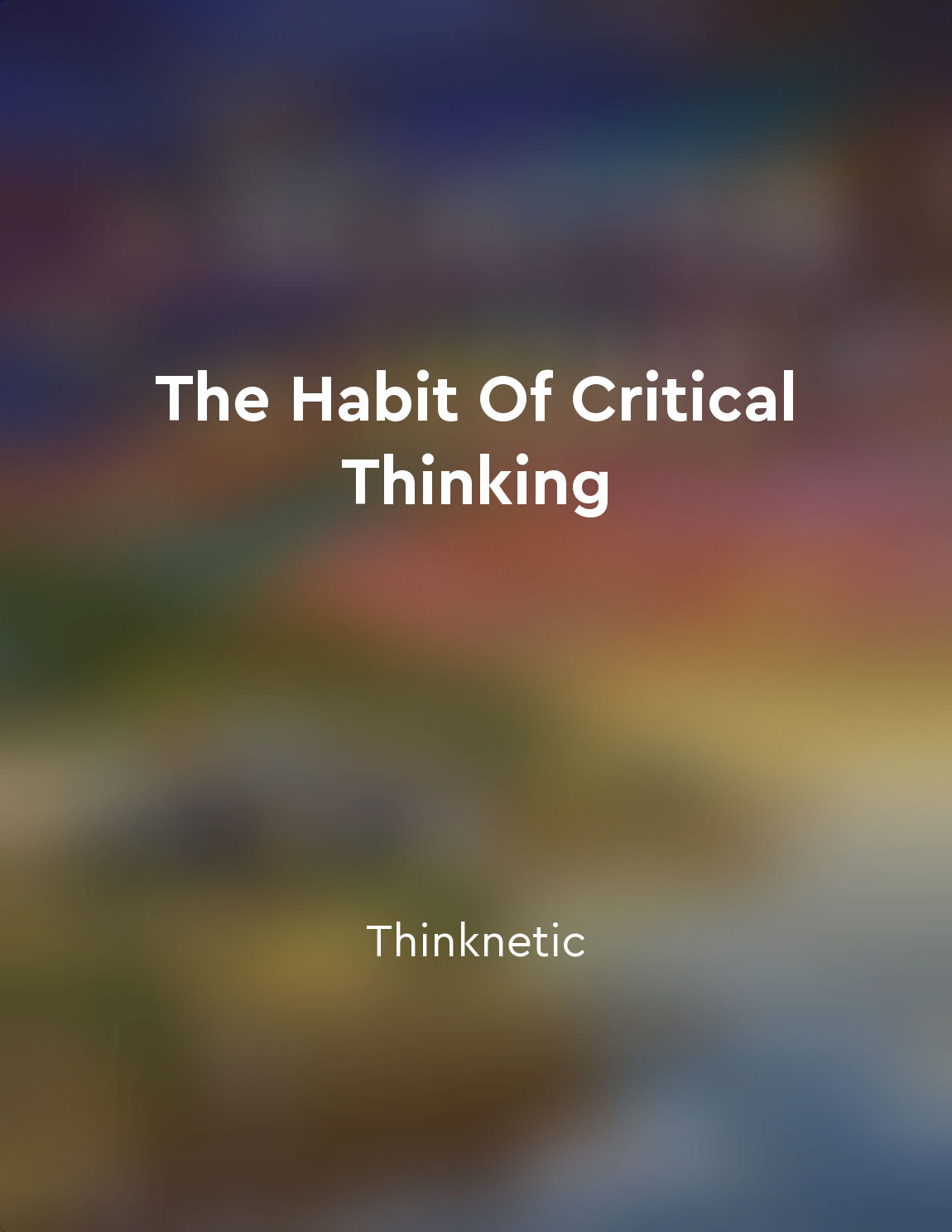Audio available in app
Critical thinkers are willing to change their minds from "summary" of Critical Thinking by David McKay
Critical thinkers are not afraid to admit when they are wrong. This willingness to change their minds is a key aspect of critical thinking. It requires humility and open-mindedness, as well as a commitment to following the evidence wherever it may lead. When new information comes to light or a different perspective is presented, critical thinkers do not dismiss it out of hand. Instead, they carefully consider the evidence and arguments before making a judgment. They are willing to engage in thoughtful reflection and self-examination, even if it means admitting that they were mistaken. Chan...Similar Posts
Embracing uncertainty and ambiguity as catalysts for growth
In today's fast-paced and ever-changing world, uncertainty and ambiguity are constant companions. Many people view these elemen...

Recognizing logical inconsistencies is a key skill
It is crucial to be able to identify logical inconsistencies when engaging in critical thinking. This skill allows individuals ...
Engage in active and reflective thinking
Engage in active and reflective thinking involves more than just passively receiving information. It requires actively question...
Cultivate a habit of reflection and introspection
To truly understand ourselves and our actions, we must take the time to reflect and look inward. This process of introspection ...
Learning from failures
Learning from failures is a fundamental aspect of achieving success in any pursuit. It is often said that failure is the steppi...
Ethics of intellectual autonomy
Ethics of intellectual autonomy is a concept that emphasizes the importance of independent thinking and freedom of thought. It ...
Examine multiple perspectives
Considering multiple perspectives is a critical aspect of developing one's critical thinking skills. It involves taking into ac...

Practice selfreflection
Self-reflection is a crucial aspect of developing critical thinking skills. It involves taking the time to pause and examine ou...
The illusion of knowledge can lead to harmful consequences
The illusion of knowledge can indeed have harmful consequences. When we believe we understand something, we are less likely to ...
